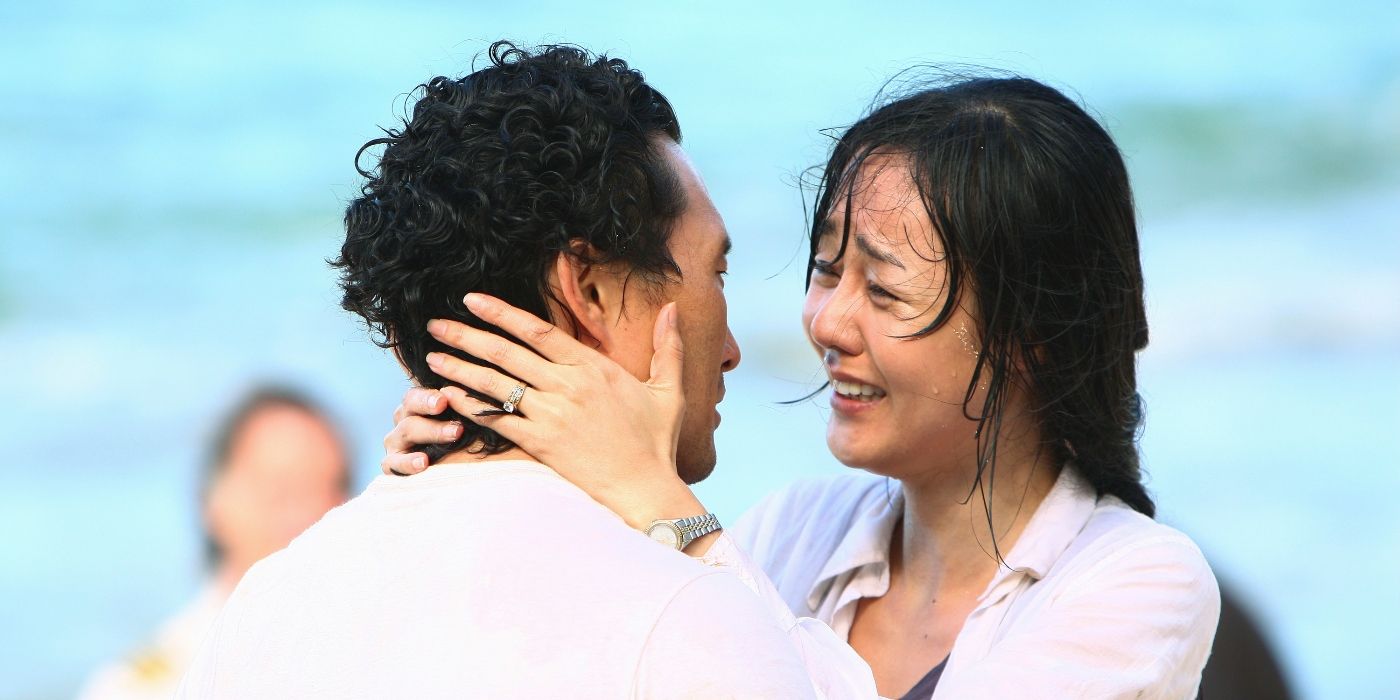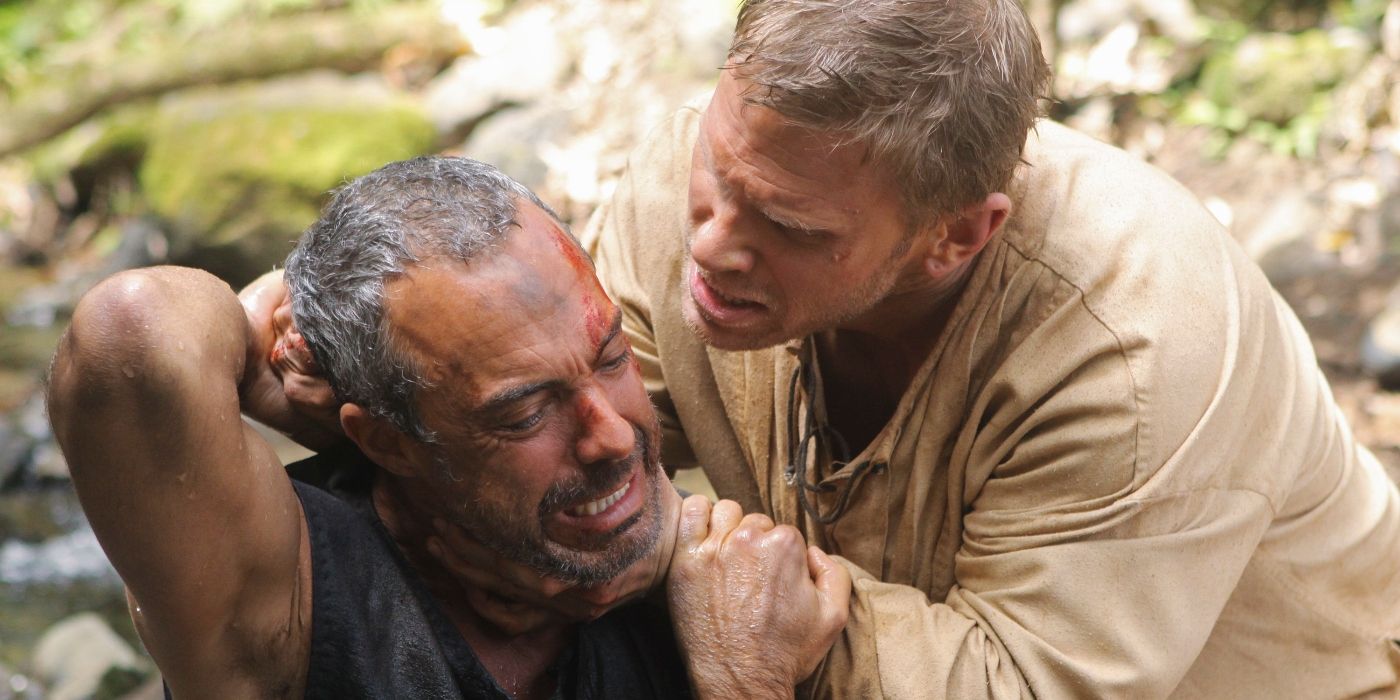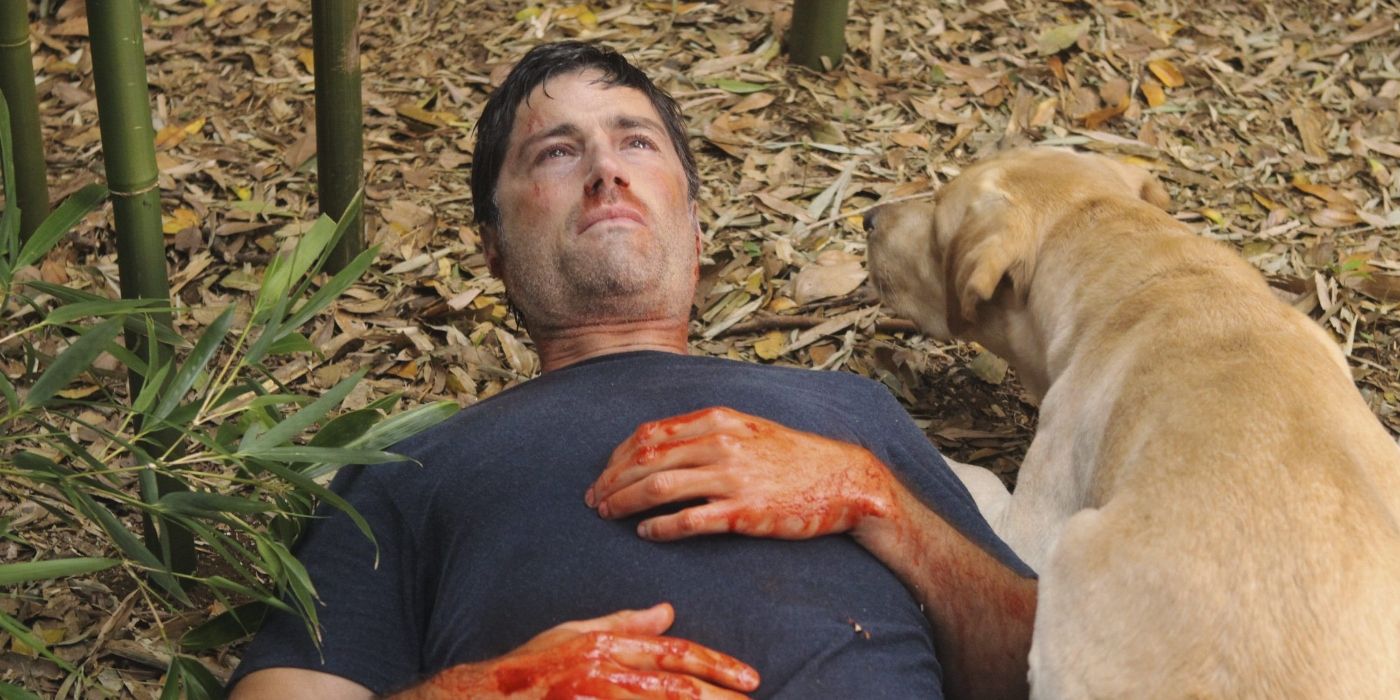The Big Picture
- Lost's final season left many questions unanswered.
- Season 6 of Lost sacrificed character development for plot progression, leading to mixed reactions.
- The flash-sideways in the final season of Lost represented a metaphysical exploration of closure.
In the early 2000s, J.J. Abrams, Damon Lindelof, and Carlton Cuse created a groundbreaking broadcast television show that trapped viewers in its ever-expanding mythology. Lost debuted in 2004, with a memorable pilot episode that caught the attention of the world, and quickly became a sci-fi sensation with a very passionate fandom. Lost posed an infinite number of questions that, given an early final three-season renewal, most fans were expecting to be answered. Nevertheless, when the sixth and final season was released, week after week, more questions were raised and not enough answers were delivered in the end. Reception of the series finale was and continues to be divisive, making it on some of the best and worst finale lists of the audience. In retrospect, Lost’s final season wasn’t about getting answers, at least not mainly. It was about wrapping up our beloved characters’ stories through the unique dual-timeline storytelling device that was the core of the show.

Lost
The survivors of a plane crash are forced to work together in order to survive on a seemingly deserted tropical island.
- Release Date
- September 22, 2004
- Cast
- Naveen Andrews , Nestor Carbonell , Henry Ian Cusick , Emilie de Ravin , Michael Emerson , Jeff Fahey , Matthew Fox , Josh Holloway
- Main Genre
- Drama
- Seasons
- 6
- Studio
- ABC
'Lost' Explored Alternate Realities and Complex Sci-Fi
For the first three seasons of Lost, flashbacks were essential to getting to know the Oceanic Flight 815 passengers. Introduced in the Season 3 finale and continuing through Season 4, flash-forwards gave us a glimpse of the lives of those who got to escape the island. In Season 5, the double-setting stories continued with parts set in the present-day of the island and other parts in the 1970s, at the DHARMA Initiative’s peak. At the end of Season 5, Jack (Matthew Fox) and the crew try to prevent the incident that caused the island to be an electromagnetic energy pocket. If successful, this would've avoided the plane crash that started it all.
Lost's sloppy sixth season begins, and the plan seems to have worked, as we see Jack on the plane flying through some turbulence but ultimately making it to Los Angeles. Further solidifying this idea, there’s a shot showing the island at the bottom of the ocean floor. But immediately after the opening credits roll, the survivors are shown on the present-day island again. They only managed to close the time loop and everything happened as it was supposed to. The crash-less scenario was an alternate reality, the flash sideways. For most of the season, there was a shared doubt among the audience about what the true meaning of the stories in that timeline was. Most of them were too similar to previously seen flashbacks, only with slight changes that included more connections between the passengers.
Season 6 of 'Lost' Sacrificed Character Development for the Plot
Season 6 of Lost had a rocky start on the island's timeline as well. For a show that was so character-driven, there were some storylines in Season 6 that seemed to be included just to move the plot forward. Sawyer (Josh Holloway), for example, angry at Jack because of Juliet's (Elizabeth Mitchell) death, sides with The Man In Black. Claire (Emilie de Ravin) returns after being absent from Season 5 but, being infected with the Sickness by The Man In Black made her a villain without any real development. Kate (Evangeline Lilly) was divided between making sure Sawyer was okay and convincing Claire to go back to her son, Aaron. In an attempt to save Sayid (Naveen Andrews) from death, he was also infected with the Sickness. Dogen (Hiroyuki Sanada) was a new character who was hurriedly introduced as the leader of another faction of Others, and the guardian of a temple that was previously unheard of. Meanwhile, Locke's (Terry O'Quinn) presence was only physical, as The Man In Black continued using his appearance to keep manipulating those who were willing to do his bidding.
'Lost' Season 6 Had Emotional Reunions and Losses, like Sun and Jin
After a notable imbalance in the first half of the final season of Lost, the second half brought more clarity about what it all meant. Desmond Hume (Henry Ian Cusick), one of the best characters to be introduced post-Season 1, became the link between the island and the flash-sideways realities. In the latter, he embarked on a journey to wake up everyone, preparing them for what was coming next. As the characters continued meshing together, long-due reunions took place — Charlie (Dominic Monaghan) and Claire, Hurley (Jorge Garcia) and Libby (Cynthia Watros), Faraday (Jeremy Davies) and Charlotte (Rebecca Mader), and Ben (Michael Emerson) with Danielle (Mira Furlan) and Alex (Tanya Raymonde) — giving a satisfying end to storylines that were previously cut short. The emotional payoff on the island was intense as well. After Season 4's heartbreaking finale, Sun (Yunjin Kim) and Jin (Daniel Dae Kim) were apart for years. Having left their daughter behind, Sun goes back to the island, only to be reunited with Jin for a few moments before they drown in Charles Widmore's (Alan Dale) submarine. During the same underwater incident, Sayid redeems himself by sacrificing himself to save the others from a bomb.
The Man In Black Origin Story is Revealed in "Across the Sea"
In what can be considered the most divisive episode of the season, if not the whole series, Jacob (Mark Pellegrino) and The Man In Black's (Titus Welliver) eternal fight was finally explained. Being born twins and raised by Mother (surprising guest star Allison Janney), she confined them to never leave the island. The Man In Black kills her and Jacob practically kills him in turn by throwing him into the tunnel of light he was supposed to guard. This breaks the mythos that Jacob was purely good and The Man In Black purely evil. True, Jacob dedicated his existence to preventing The Man In Black from being unleashed into the outside world, but he was responsible for his transformation into an invincible monster to begin with.
Jack's conversion into a man of faith, contrary to the man of science he was, completed his narrative. By accepting Jacob's offer to be the island's guardian, he sacrificed his future. Thus, the flash-forwards gave him a chance to carry out what he missed in life — being a father. Having David (Dylan Minnette) in that timeline lets Jack prove to himself he wasn't his father. David is probably why Jack was the most resistant to waking up, so it's heartbreaking when Locke tells him he doesn't have a son. Everything comes full circle when Jack finally reconnects with Christian (John Terry) at the church to lead him into the light.
Were They Dead the Whole Time on 'Lost?'
First, let’s state the obvious. The Oceanic Flight 815 passengers on Lost weren't “dead all this time.” The fact that the flash-sideways reality took place in the afterlife doesn’t mean that they died in the plane crash or that everything was a dream. What happened on the island was real. Every single one of their moments of love, anger, despair, relief, sadness, and joy did happen. For those who were lucky enough to leave the island, their lives went on, and they eventually died. The flash sideways reality represents a timeless place in which they all were destined to meet again after all their deaths and move forward together.

'Lost' Failed Just About All of Its Female Characters
Can anyone really blame Claire for running off into the jungle to get away from everything?But why were all of them there in the end? It’s a valid question. After all, they must have had friends and family who they must’ve wanted to spend eternity with instead of a random doctor from seat 23B. But that was the point of Lost's whole run. Dr. Jack Shephard wasn’t a casual encounter in their lives anymore. These people’s shared trauma represented the deepest, most meaningful moment in their lives. It was the time when they learned and grew the most. No matter what the sentiment was towards the whole deal, the final church scene, paired with Michael Giacchino's score, hit the right heart-wrenching notes that a finale must evoke in its viewers.
While most fans expected Lost's final season to solve pending mysteries, the ultimate result was more of a metaphysical exploration of closure. The flash-sideways storylines seemed inconsequential at first, but ended up building the core for the final moments of the show. For some, it was satisfying, for some not, but what remains true is that Lost solidified itself as a pop culture disruptor that’s still streamed and talked about to this day. Its formula has tried to be replicated by other shows, but the fact remains that Lost is still a one-of-a-kind project that has yet to meet its match.
Lost is available to purchase on Prime Video in the U.S.




